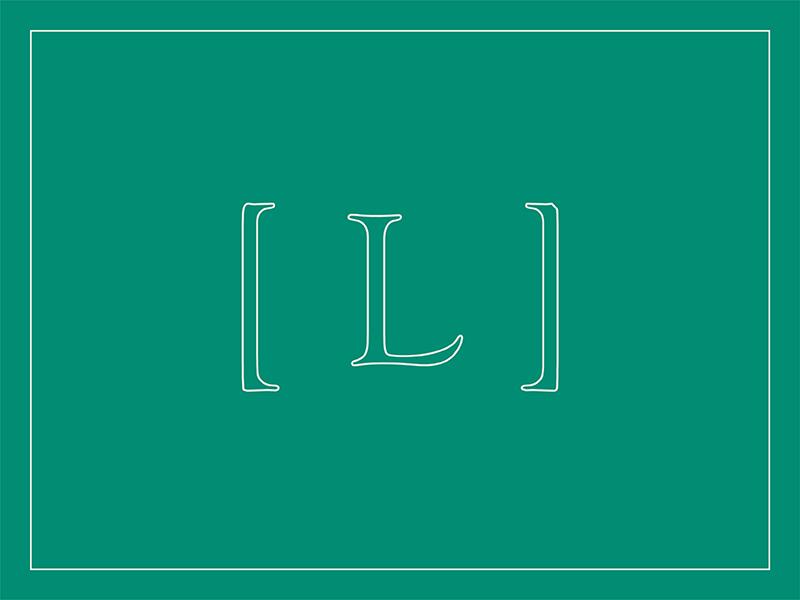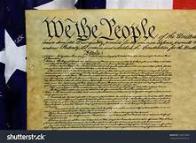A Letter on Justice and Open Debate
By: Harpers Magazine



July 7, 2020
The below letter will be appearing in the Letters section of the magazine's October issue. We welcome responses at letters@harpers.org
Our cultural institutions are facing a moment of trial. Powerful protests for racial and social justice are leading to overdue demands for police reform, along with wider calls for greater equality and inclusion across our society, not least in higher education, journalism, philanthropy, and the arts. But this needed reckoning has also intensified a new set of moral attitudes and political commitments that tend to weaken our norms of open debate and toleration of differences in favor of ideological conformity. As we applaud the first development, we also raise our voices against the second. The forces of illiberalism are gaining strength throughout the world and have a powerful ally in Donald Trump, who represents a real threat to democracy. But resistance must not be allowed to harden into its own brand of dogma or coercion—which right-wing demagogues are already exploiting. The democratic inclusion we want can be achieved only if we speak out against the intolerant climate that has set in on all sides.
The free exchange of information and ideas, the lifeblood of a liberal society, is daily becoming more constricted. While we have come to expect this on the radical right, censoriousness is also spreading more widely in our culture: an intolerance of opposing views, a vogue for public shaming and ostracism, and the tendency to dissolve complex policy issues in a blinding moral certainty. We uphold the value of robust and even caustic counter-speech from all quarters. But it is now all too common to hear calls for swift and severe retribution in response to perceived transgressions of speech and thought. More troubling still, institutional leaders, in a spirit of panicked damage control, are delivering hasty and disproportionate punishments instead of considered reforms. Editors are fired for running controversial pieces; books are withdrawn for alleged inauthenticity; journalists are barred from writing on certain topics; professors are investigated for quoting works of literature in class; a researcher is fired for circulating a peer-reviewed academic study; and the heads of organizations are ousted for what are sometimes just clumsy mistakes. Whatever the arguments around each particular incident, the result has been to steadily narrow the boundaries of what can be said without the threat of reprisal. We are already paying the price in greater risk aversion among writers, artists, and journalists who fear for their livelihoods if they depart from the consensus, or even lack sufficient zeal in agreement.
This stifling atmosphere will ultimately harm the most vital causes of our time. The restriction of debate, whether by a repressive government or an intolerant society, invariably hurts those who lack power and makes everyone less capable of democratic participation. The way to defeat bad ideas is by exposure, argument, and persuasion, not by trying to silence or wish them away. We refuse any false choice between justice and freedom, which cannot exist without each other. As writers we need a culture that leaves us room for experimentation, risk taking, and even mistakes. We need to preserve the possibility of good-faith disagreement without dire professional consequences. If we won't defend the very thing on which our work depends, we shouldn't expect the public or the state to defend it for us.
| Elliot AckermanSaladin Ambar, Rutgers UniversityMartin AmisAnne ApplebaumMarie Arana, authorMargaret AtwoodJohn BanvilleMia Bay, historianLouis Begley, writerRoger Berkowitz, Bard CollegePaul Berman, writerSheri Berman, Barnard CollegeReginald Dwayne Betts, poetNeil Blair, agentDavid W. Blight, Yale UniversityJennifer Finney Boylan, authorDavid BromwichDavid Brooks, columnistIan Buruma, Bard CollegeLea CarpenterNoam Chomsky, MIT (emeritus)Nicholas A. Christakis, Yale UniversityRoger Cohen, writerAmbassador Frances D. Cook, ret.Drucilla Cornell, Founder, uBuntu ProjectKamel DaoudMeghan Daum, writerGerald Early, Washington University-St. LouisJeffrey Eugenides, writerDexter FilkinsFederico Finchelstein, The New SchoolCaitlin FlanaganRichard T. Ford, Stanford Law SchoolKmele FosterDavid Frum, journalistFrancis Fukuyama, Stanford UniversityAtul Gawande, Harvard UniversityTodd Gitlin, Columbia UniversityKim GhattasMalcolm GladwellMichelle Goldberg, columnistRebecca Goldstein, writerAnthony Grafton, Princeton UniversityDavid Greenberg, Rutgers UniversityLinda GreenhouseRinne B. Groff, playwrightSarah Haider, activistJonathan Haidt, NYU-SternRoya Hakakian, writerShadi Hamid, Brookings InstitutionJeet Heer, The NationKatie Herzog, podcast hostSusannah Heschel, Dartmouth CollegeAdam Hochschild, authorArlie Russell Hochschild, authorEva Hoffman, writerColeman Hughes, writer/Manhattan InstituteHussein Ibish, Arab Gulf States InstituteMichael IgnatieffZaid Jilani, journalistBill T. Jones, New York Live ArtsWendy Kaminer, writerMatthew Karp, Princeton UniversityGarry Kasparov, Renew Democracy InitiativeDaniel Kehlmann, writerRandall KennedyKhaled Khalifa, writerParag Khanna, authorLaura Kipnis, Northwestern UniversityFrances Kissling, Center for Health, Ethics, Social PolicyEnrique Krauze, historianAnthony Kronman, Yale UniversityJoy Ladin, Yeshiva UniversityNicholas Lemann, Columbia UniversityMark Lilla, Columbia UniversitySusie Linfield, New York UniversityDamon Linker, writerDahlia Lithwick, Slate Steven Lukes, New York UniversityJohn R. MacArthur, publisher, writer |
Susan Madrak, writer Phoebe Maltz Bovy, writerGreil MarcusWynton Marsalis, Jazz at Lincoln CenterKati Marton, authorDebra Maschek, scholarDeirdre McCloskey, University of Illinois at ChicagoJohn McWhorter, Columbia UniversityUday Mehta, City University of New YorkAndrew Moravcsik, Princeton UniversityYascha Mounk, PersuasionSamuel Moyn, Yale UniversityMeera Nanda, writer and teacherCary Nelson, University of Illinois at Urbana-ChampaignOlivia Nuzzi, New York MagazineMark Oppenheimer, Yale UniversityDael Orlandersmith, writer/performerGeorge PackerNell Irvin Painter, Princeton University (emerita)Greg Pardlo, Rutgers University - CamdenOrlando Patterson, Harvard UniversitySteven Pinker, Harvard University Letty Cottin Pogrebin Katha Pollitt, writerClaire Bond Potter, The New SchoolTaufiq Rahim, New America FoundationZia Haider Rahman, writerJennifer Ratner-Rosenhagen, University of WisconsinJonathan Rauch, Brookings Institution/The AtlanticNeil Roberts, political theoristMelvin Rogers, Brown UniversityKat Rosenfield, writerLoretta J. Ross, Smith CollegeJ.K. RowlingSalman Rushdie, New York UniversityKarim Sadjadpour, Carnegie EndowmentDaryl Michael Scott, Howard UniversityDiana Senechal, teacher and writerJennifer Senior, columnistJudith Shulevitz, writerJesse Singal, journalistAnne-Marie SlaughterAndrew Solomon, writerDeborah Solomon, critic and biographerAllison Stanger, Middlebury CollegePaul Starr, American Prospect/Princeton UniversityWendell Steavenson, writerGloria Steinem, writer and activistNadine Strossen, New York Law SchoolRonald S. Sullivan Jr., Harvard Law SchoolKian Tajbakhsh, Columbia UniversityZephyr Teachout, Fordham UniversityCynthia Tucker, University of South AlabamaAdaner Usmani, Harvard UniversityChloe ValdaryLucia Martinez Valdivia, Reed CollegeHelen Vendler, Harvard UniversityJudy B. WalzerMichael WalzerEric K. Washington, historianCaroline Weber, historianRandi Weingarten, American Federation of TeachersBari WeissSean Wilentz, Princeton UniversityGarry WillsThomas Chatterton Williams, writerRobert F. Worth, journalist and authorMolly Worthen, University of North Carolina at Chapel HillMatthew YglesiasEmily Yoffe, journalistCathy Young, journalistFareed Zakaria |
Institutions are listed for identification purposes only.

 Article is LOCKED by author/seeder
Article is LOCKED by author/seeder
Tags
Who is online
56 visitors


The warning is from 153 prominent artists and intellectuals concerning an “intolerant climate” engulfing the culture. They are talking about the left and it's tactics since the death of George Floyd.

“The free exchange of information and ideas, the lifeblood of a liberal society, is daily becoming more constricted,” the letter declared, citing “an intolerance of opposing views, a vogue for public shaming and ostracism and the tendency to dissolve complex policy issues in a blinding moral certainty.”
The letter was spearheaded by the writer Thomas Chatterton Williams, a columnist for Harper’s
and a contributing writer for The New York Times Magazine. Credit... Dominique Nabokov
Trump and his followers are off topic
A lot of "liberals" on that list. Probably a few "communists" too.
A lot of old fashioned liberals who believe in free speech and civil liberties. On the other hand many progressives could have added their names, but refused to do so.
It is a clear message to the hard left!
I wouldnt read too much into the people who didnt sign it. I can think of many conservatives whose names are not on there too.
No? How about Richard Kim, the enterprise director of the Huff Post, (who was asked to sign it?) He claimed that "I could see in 90 seconds that it was fatuous, self-important drivel that would only troll the people it allegedly was trying to reach — and I said as much.”
In other words he is intolerant of free speech and we all know the penalties for saying such things as "All lives matter" - Drum roll please - It's "racism!!!"
Good point, so many of them have already been devoured by their own!
There is a news story today about a LONG list of people the president of the United States said he wanted "canceled". I guess he loves cancel culture too.
John, you don't even realize your'e doing it anymore! Read Post # 1 - what I have highlighted in red!
I would respect it if we didnt have overwhelming evidence that the person you devote yourself to here every day is the king of cancel culture. Read em and weep Vic.
I'm way ahead of you John, I read the New York Times response before breakfast.
The issue is freedom of speech! And btw, how many at the Times have lost their jobs over free speech?
A lot? Like virtually or almost every one of them. I can only hope that they have an impact on the progressive left when it comes to tolerance, free expression, and diversity of ideas. These are like the genuine liberals we grew up with and I was once a part of. The kind that accepted that we are all patriotic Americans who love our country and celebrate Independence Day but that we simply disagreed about the best ways to make America better.
A List Of People And Things Donald Trump Tried To Get Canceled Before He Railed Against 'Cancel Culture' - CNNPolitics
We are not having a discussion or a debate. The country is airing grievances and citing excuses. Our political leaders have taught us that petulant protest has become the most viable means of getting what we want. The country is being told by academic elite and intellectuals that the only path forward is to accede to the desires of the aggrieved without debate.
The country is taking another step toward National Socialism with irrational appeals to freedom and democracy. Freedom in a civilized society does not mean that people can simply do as they damned well please. And history shows that a democratic majority is the most uncompromising and harshest tyrant that has ever obtained the authority to govern.
The academic elite and intellectuals have unleashed a beast. And the beast will not be controlled with rational arguments and reasoned debate. The academic elite and intellectuals have created their own doom. The academic elite and intellectuals cannot protect themselves from a democratic mob that has the freedom to simply do as it damned well pleases. It's too late to avoid the reckoning of the beast that has been nurtured by liberal intemperance and intolerance.
It will take a strong response from someone/something still unknown.
How is it possible to overthrow a democratic majority? There will be attempts to sow the seeds of division and foster antagonism between factions to avoid the emergence of a majority. Allowing the factions to exercise the freedom to do as they please is an expedient way to foster antagonism between factions. Division becomes a mode of survival for liberalism. And it doesn't matter if it is classic liberalism, neo-liberalism, social liberalism, or economic liberalism. Liberal intemperance and intolerance has spread so far and wide that the concept of divide and conquer has been transformed into an imperative to divide to survive.
But that breakdown of civilized society cannot be contained within the United States. Illegal immigrants are now a faction. Foreign interests are now a faction. Global institutions are now a faction. Liberal intemperance and intolerance is spreading around the world like the pandemic. The beast of liberalism has escaped the confines of any geopolitical boundary. The beast has been uncaged and is roaming the earth, doing as it damned well pleases.
I hate to admit it, but it's all true. All the factions are special interests.
Unfortunately the factions compete with each other for their own freedoms. The best that can be achieved is peaceful coexistence between factions. Factions do not naturally integrate. And factions are intolerant of dissent and debate within the faction. Like minds want to remain alike.
The founding documents of the United States do not promise equality or unfettered freedom. The founding of the United States established a social contract to form a civilized society based upon self determination. Liberty is not freedom to do as one pleases. Liberty is a social contract to sustain a civilized society. Restricting an individual's freedoms does not necessarily limit their liberty.
Justice is not about getting what one desires. Justice is about responsibility and accountability for one's abuse of liberty. Suffering the consequences of abusing liberty is not an injustice. The United States is not a free people. The United States is a free society bound together by the social contract of liberty.
Liberty and justice are not being protected or enhanced by liberal intemperance and intolerance dividing society and weakening the social contract.
We have seen some assimilation in the past, say 100 years ago. We were fairly united for a long time.
Assimilating into a free society isn't about obtaining equality or freedom to do as one pleases. Assimilation requires adopting the social contract and not abusing liberty.
"In one there are many?"